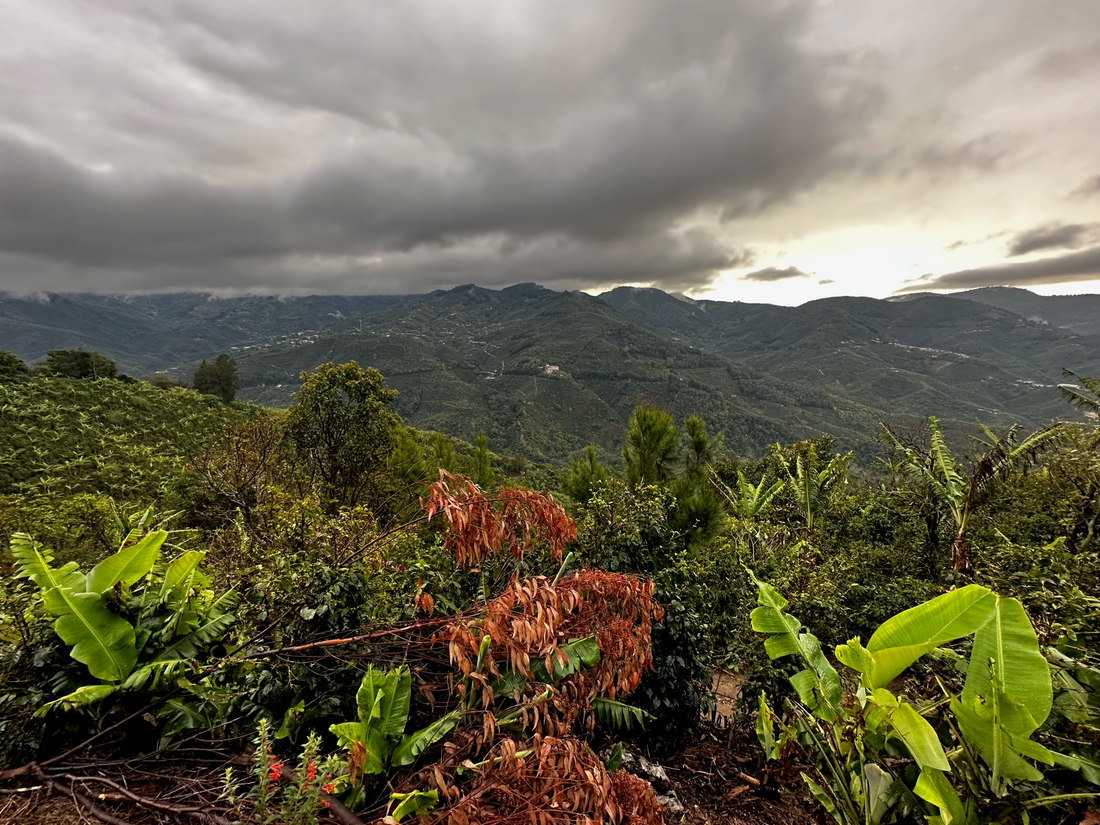Welcome to a deep dive into the heart of Costa Rican coffee policy, where quality is law, and the coffee bean is king. At Tectonic Coffee, we treasure the story behind each bean, and Costa Rica's unique approach to coffee agriculture is a tale worth telling. Discover the stringent standards, environmental considerations, and meticulous export processes that make Costa Rican coffee truly world-class.
Arabica Only: A Legal Standard for Superiority
In 1989, Costa Rica affirmed its dedication to coffee quality by passing a groundbreaking law that prohibited the cultivation of Robusta, a hardier but less flavorful coffee variety. This bold legislative move ensured that only high-quality Arabica would be grown on Costa Rican soil, a decision that underscored the country's commitment to excellence and positioned it as a global leader in premium Arabica production.
The roots of Costa Rica's coffee industry trace back to the late 18th century, with the Arabica coffee plant thriving in the Central Valley's ideal growing conditions. Recognizing coffee's economic potential, the government even offered free land to coffee farmers in the 19th century to encourage production, paving the way for coffee to become a cornerstone of Costa Rica's modernization and economic development.
While cooperatives and fair trade practices are now integral to supporting the nation's coffee growers, ensuring environmental and economic sustainability, a recent debate has emerged with proposals to lift the decades-long ban on Robusta. This reflects a balancing act between preserving the high-quality reputation of Costa Rican Arabica and adapting to the challenges posed by diseases and climate change.
Sustainability and Innovation in Agricultural Practices

The debate on allowing Robusta coffee cultivation in Costa Rica, previously banned to ensure the production of high-quality Arabica, has been sparked by the impact of climate change on coffee farming. The argument for lifting the ban centers on Robusta's resilience to diseases and warmer temperatures, which could become increasingly vital as the climate continues to shift.
The decision by the agriculture ministry to draft a resolution permitting Robusta in designated areas under strict controls by ICAFE highlights a tension between maintaining traditional high standards and adapting to new environmental realities. Some industry members are concerned that introducing Robusta could threaten Costa Rica's reputation for premium Arabica beans, while others see it as an essential step towards sustainability and economic resilience.
These discussions occur within the context of Costa Rica's progressive environmental policies. The country has long encouraged sustainable coffee farming techniques, like shade-grown coffee, which supports biodiversity and soil health. Additionally, Costa Rica's commitment to carbon neutrality and water conservation methods in coffee processing reflects a broader dedication to environmental stewardship and innovative agricultural practices.
This ongoing debate represents a broader challenge facing agricultural sectors worldwide: how to balance tradition and quality with the pressing need for adaptation and resilience in the face of global environmental changes.
Exporting Excellence: A Journey from Farm to Global Market

Costa Rican coffee beans are distinguished not just by their flavor, but by their size and density—a reflection of the altitude at which they are grown. ICAFE employs a meticulous classification system, grading beans into categories like Strictly Hard Beans (SHB) from elevations above 3,900 feet, Good Hard Beans (GHB) from 3,300 to 3,900 feet, and Medium Hard Beans (MHB) from 1,600 to 3,000 feet. This altitude-based grading system ensures that each bean's hardness—a proxy for quality—corresponds to the specific climatic conditions it was cultivated under, which directly influences its maturation rate, acidity, and flavor profile.
These carefully classified beans undergo rigorous taste testing, ensuring that only the best make it to the global market. With this system, Costa Rican coffee maintains its stature as a premium product, and consumers can trust the traceability and quality of the coffee that lands in their cup.
Conclusion: The Costa Rican Coffee Experience
Every sip of Costa Rican coffee is a taste of its rich volcanic soil, the high-altitude sunshine, and the laws that protect and enhance its quality. Through strict regulations, a commitment to environmental stewardship, and a detailed export process, Costa Rica has cemented its position as a leader in the world of coffee. As enthusiasts and purveyors of fine coffee, we at Tectonic Coffee celebrate the profound influence of Costa Rican policies and practices in bringing you a product that not only tastes good but also does good.

